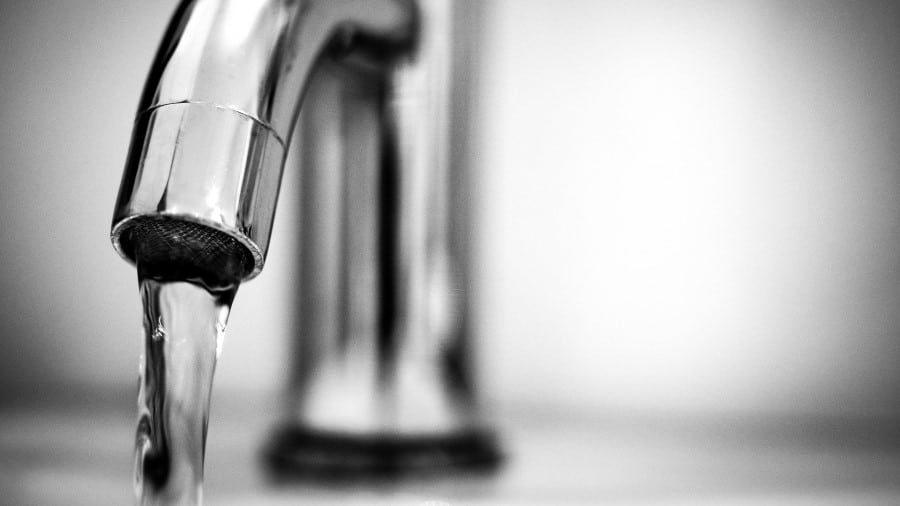
A lot of us, especially in the USA, drink tap water but is it safe for iguanas? I was wondering this exact thing when I first got my pet iguana. If you are a responsible pet iguana owner, you will be eager to find this out too! Lucky for you, I have been doing a lot of research online, and here’s the answer.
Iguanas can’t drink tap water. Regardless if it’s a pet iguana or wild iguana, drinking tap water, particularly in the United States of America is very bad for the health of the reptile. If you have been giving your iguana tap water to drink, I strongly suggest it’s time to halt it.
Many people make the mistake of not looking as seriously into what their iguanas drink as much as the food it consumes.
An iguana that’s been accustomed to drinking tap water will start having complications to the core of its bones. It would eventually cost it a slow, painful death.
With that said, there are other ways to provide drinking water even from the tap for iguanas. Read on to find out more about it.
Why Is Tap Water So Dangerous for Iguanas?
For a start, all reptiles, including iguanas are very sensitive to chemicals in their body. The tap water that flows through our household faucets is just full of chemicals, especially in the USA as I’ve previously mentioned.
These chemicals cause an imbalance to the reptile’s skin and internal organs; sometimes you wouldn’t even be able to see any sign of damage until it’s too late.
Either that or one fine day, you might wake up to see your pet iguana deceased. Sadly, if you have not found this article, you won’t have known what caused such a devastating loss to you.
After a little research, here is what I could find out about how some chemicals in tap water actually affect an iguana.
Chemicals In Tap Water That Makes It Undrinkable for Iguanas
The most common chemicals that are readily found in our tap water include the likes of Chlorine, Fluoride, and chloramines. These chemicals can be very harmful to your pet iguana if they are ingested.
Chlorine
As you might already know, Chlorine is the same chemical used in public pools, and its main purpose is to cleanse the water and eliminate bacteria.
You may ask, isn’t that good, that it would also kill bacteria inside the iguana’s stomach? Well, it isn’t that simple, chlorine is very reactive towards the inner lining of any animal, even humans for that instance.
What it would do is beginning with burning from the mouth all the way to the stomach and eventually causes damage to the respiratory and digestive systems.
If you wonder why the iguana doesn’t feel it when it drinks tap water, it’s simply because the quantity of chlorine is too little and the immediate effect is none, it’s over a prolonged period that the effects are felt.
Flouride
Moving on, there is also Fluoride in your tap water. Fluoride as you may know is an active ingredient in many types of toothpaste and is a constant debate about its inclusion in toothpaste, specifically in America.
Now, you may already know that your tap water is induced with fluoride, and even though fluoride is helpful for protecting gums, which is only the case if it’s applied directly on the gums. Hence, drinking fluoride water, even for reptiles is very dangerous.
You may argue that there is fluoride even in river water, lakes, or beach yet the wild iguanas are fine. Fair enough, but that’s because the content of fluoride in natural waters is much lesser in concentration compared to tap water.
Excessive fluoride in the iguana’s system would eventually cause a decrease in the absorption of calcium that it requires. This causes your iguana’s body to start exhausting up the calcium that is used to form its bones.
In other words, it would be chewing up the calcium in its own bones, making the bone structure weak and soft. Without the required bone strength, your iguana will eventually get metabolic bone disease (MBD) and head towards a slow demise.
Chloramines
Another dangerous chemical that is found in tap water would be chloramines. Chloramines are basically a combination of chlorine and ammonia.
As ammonia is naturally present in tap water, the addition of chlorine to treat tap water for the usage of humans for safe consumption causing a chemical reaction that creates chloramines.
For those who have fish or gill animals as pets, I’m sure you would have heard of gill necrosis. Research has shown that chloramines are essentially the main cause of gill necrosis. For those who haven’t come across this term, let me simplify it for you.
Gill necrosis is a type of cancer that attacks the gills and in some cases. For instance, the iguanas, which are without gills, will be attacked on the lungs. It would basically swell up the membranes and cost suffocation in breathing.
Solution for Iguanas to Drink Tap Water
To every problem, there will be a solution. Upon further research, I did manage to find a solution to providing tap water for iguanas to drink.
Water Conditioner
The solution is merely a water conditioner. Water conditioners are now very freely purchasable in most stores.
What it basically does is remove the chemicals and any heavy dirt that may be present from the tap water (trust me, you will be surprised to see solid dirt particles in your tap water).
After that, it will turn into clean, healthy water for the consumption of your iguana. What would make it better is if you could invest slightly more and get a water conditioner that adds essential electrolytes and ions into the tap water after conditioning it.
Filtered Water
Another option you have is getting filtered water, this works pretty much the same as a water conditioner. It can also be enhanced further with the addition of electrolytes and ions just like using a water conditioner. The electrolytes and ions would basically maintain the minerals in the water and keep its pH value constant.
Distilled Water
You can also let your iguana drink distilled water. However, with this method, you will be serving your iguana with water without minerals that were present in non distilled water.
To compensate for that, you will need to add extra minerals or supplements into the food of your iguana. This is to ensure it receives the required amount and types of minerals.
Some may suggest letting your iguana drink water after the reverse osmosis process. Well, let me assure you that this process is very similar to distilled water, in which it would remove the minerals from the water source and remineralization would be required.
Conclusion
Tap water is not safe for consumption for an iguana. When an iguana wants to drink water, it doesn’t know what kind of harmful substances are in the water. It would just drink to quench its thirst.
Nevertheless, as a responsible pet owner, it is our responsibility to ensure we do not cause any unwanted harm to the health of your iguana.
There are times when we need to step up and make the changes that are required for our voiceless buddies, and this my friends, is one of those moments.
If you have been feeding your iguana tap water for long period, I suggest taking it to a vet as soon as possible to check its health. There may be damages already done that might not be visible to our naked eye.
Their timely recovery may be dependent on you. Take extra measures to ensure that your tap water is well conditioned for your iguana to drink.
This way, you would have a healthy and active iguana. You always want the best for your reptile friend, don’t you?

